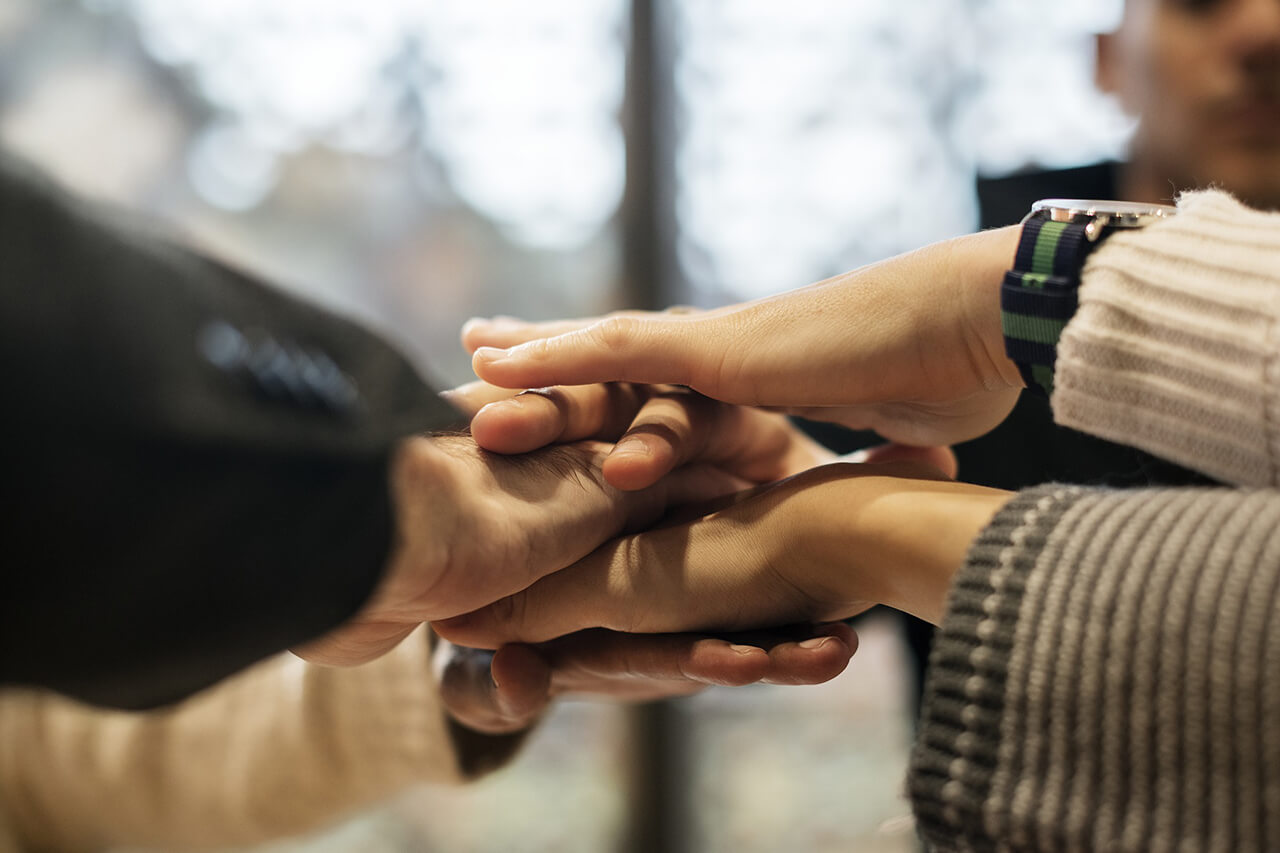The word “allyship” conveys the idea of connectedness, solidarity and support. In this context, allies are people, who are not intersex themselves, who support and campaign on behalf of inter* people and address their concerns.
We would like to highlight a number of ways in which it is possible to prevent discrimination against intersex people and to become an ally of inter* people. We would also like to explain a few things that need to be taken into account when considering the subject of “allyship”.
First of all, it is necessary to understand that people have different ideas about what it means to be an ally. Even though standing up for the rights of groups of people facing discrimination is commendable and worthwhile, it is sincerity, the type of action and tenacity that really count. It is not enough for an ally to simply describe the situation; the main objective should be to act and behave in an appropriate way.
Combat discrimination – everyone can help
The concept of binary gender is deeply rooted in many societies and is perpetuated through social practices. The practice of allowing intersex children to be operated on at an early age and to have their gender “aligned” with a prescribed norm stems from the deeply-held conviction that there are only two genders and all other perceptions of gender deviate from this and would not be accepted by society. Due to the concern that children would suffer discrimination over the course of their lives and would feel “defective”, numerous operations are carried out without the consent of inter* people instead of taking action against discrimination elsewhere. Fundamental changes, such as a change in public attitudes, are required to alter this situation. Here are a few tips on how to act in a supportive way and to show solidarity:
- Talk openly. The more intersex is discussed and is better understood by society, the less invisible and stigmatised inter* people will be. Talk about the subject among friends, family and colleagues. Do not tolerate false or discriminatory statements.
- Take gender diversity into account when you choose which words to use and throughout your everyday life. For example, you can try to speak in a gender-neutral way. Bear in mind that inter* people can identify as either binary or non-binary, just like endosex people. It is generally advisable to never to make assumptions about a person’s gender/gender identity based on a person’s appearance. It is more considerate to speak about and with people using their name and therefore avoid using gender-based personal pronouns (he/she, his/her, him/her etc.) until the people concerned have specified their preferences.
You can also talk to expectant parents you know about intersex and generally avoid asking expectant or new parents about the sex of their child. It is much more important to enquire about the wellbeing of the child and its name.
- Support activists and/or organisations. There are a number of organisations with a great deal of expertise. They are part of a strong network and involve intersex people themselves, so it is not necessary to reinvent the wheel. (Examples include: www.oiigermany.org, www.ilga-europe.org, www.im-ev.de, www.dritte-option.de)
- When supporting disadvantaged groups, it is important to focus on the people being discriminated rather than on yourself. Although you are naturally allowed to express your sympathy and dismay, you should remind yourself and others that you are lucky that you can fit into societal norms and can therefore enjoy a number of advantages. Share your advantages with inter* people by providing your support.
- Do not pressure inter* people to spend their time drawing attention to matters such as gender construction. The needs of intersex people should be paramount.
- Include the subject of inter* and the perspectives of inter* people in your work.
You can read more on the following websites:
- Die Menschenrechte von intergeschlechtlichen Menschen schützen – Wie können Sie helfen? – a toolkit compiled by OII Germany. (German)
- Guide to Allyship – a guideline project by Amelie Lamont. (English)
- 8 Ways You Can Be An Ally to Intersex Students – tips on how to engage with inter* people in schools. Written by Kenna, an intersex school student. (English)
- Intersex Awareness and Allyship – tips, info and a quiz by The Canadian Centre for Gender and Sexual Diversity. (English)
- “Advice for Being an Ally to Intersex People” – an article by Cary Gabriel Costello, author of the blog The Intersex Roadshow. (English)
- “We Need to End Intersex Erasure in Queer Communities” – Hans Lindahl on the necessity of recognising and providing a place for inter* people in the LGBT community. (English)
- “Es waren zwei Königskinder. Intersexualität und Queer Politiken”. A text by Joris Gregor on the boundaries and possibilities of queer politics in relation to the subject of intersex. (Published under the name Anja Gregor). (German)
